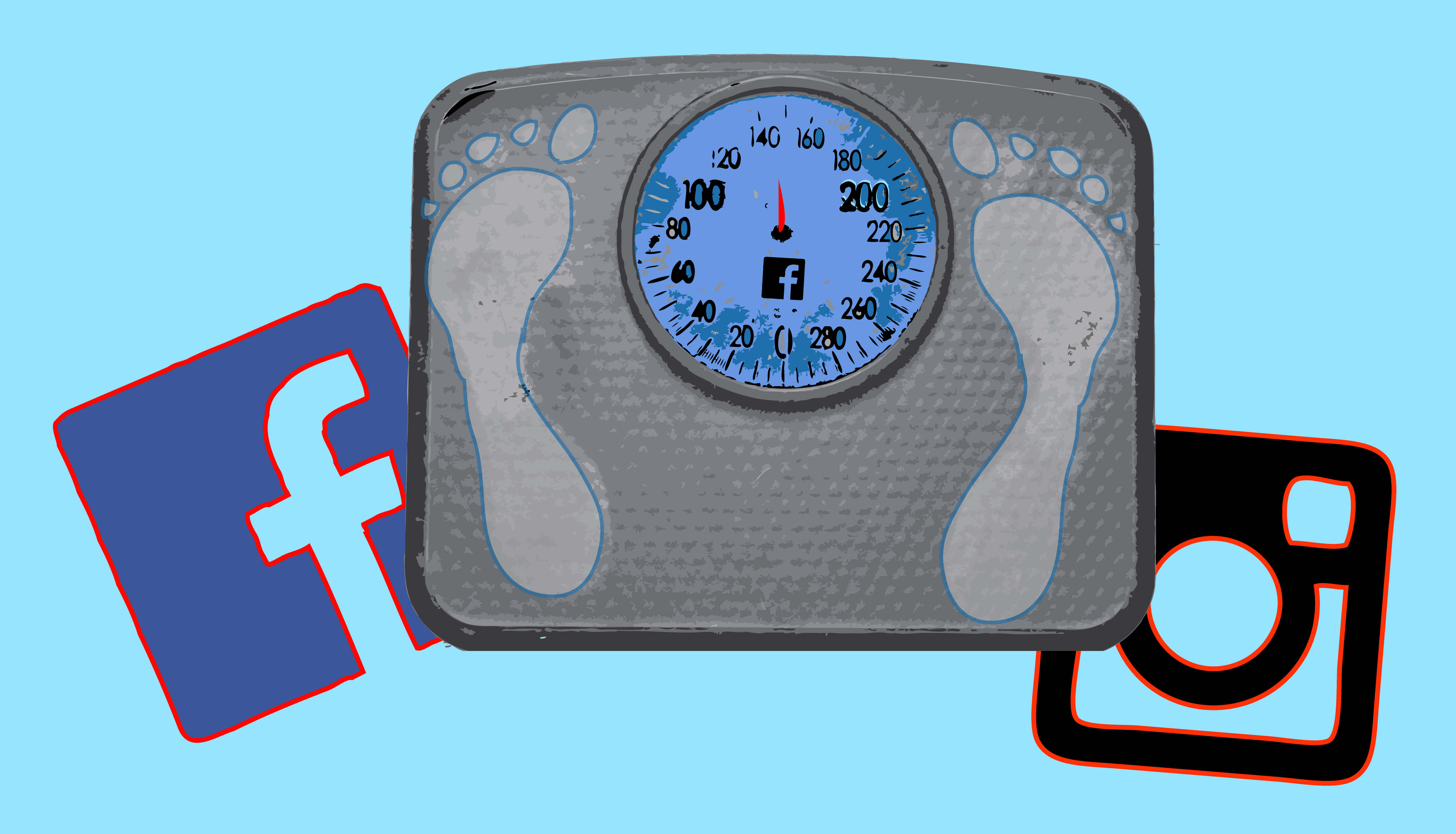Social media is promoting binge eating disorder, bigorexia and orthorexia
Check your social media accounts—Twitter, Facebook, Instagram. I am almost certain that amongst your friends’ posts you saw at least one of the following hashtags: #cleaneating #fitisthenewskinny #gains.
Sound familiar?
So the question is, when does an interest in having a healthy lifestyle cross over into an unhealthy obsession? It’s clear social media is facilitating a new breed of eating disorders.

As a registered dietitian, I regularly see the relationship between food and the psyche in my clients. We are in an age where, yes, we have made a lot of progress on body image and acceptance, but new unattainable body standards are still being portrayed by some of the most followed celebrities and social media stars. These filtered, perfectly lit images of men and women are helping propagate a new breed of eating disorders.
Let’s get some terminology on the table from the National Eating Disorders Association. We are probably all familiar with anorexia and bulimia but there are some new terms that are reflecting today’s trends in extreme health and fitness:
Binge Eating Disorder: frequently binging i.e. eating very large amounts of food. People with BED could be overweight, obese or normal weight.
Some symptoms include:
1. Eating very rapidly, in large amounts, without being hungry.
2. Feeling that binges are out of control.
3. Feeling depressed and guilty after binging.
Bigorexia: also known as muscle dysmorphia, is a disorder where a person becomes obsessed with the idea that they aren’t muscular enough. Mostly men are affected by this disorder with an average age onset of 19.
Symptoms could include:
1. Ignoring other important activities and responsibilities just to maintain exercise regime.
2. Avoiding situations where the body is exposed to others.
3. Continuing to exercise, diet and take drugs despite negative consequences.
Orthorexia: an obsession with avoiding foods perceived to be unhealthy. Surprisingly, this eating disorder tends to affect men more than women.
Signs include:
1. Spending most of the time planning, shopping, and eating meals.
2. Isolating oneself from others.
3. Being very critical when strict diet restrictions aren’t followed and feeling very proud when they are.
While still relatively uncommon in Canada, 2.8 per cent of females and 0.5 per cent of males are affected with eating disorders according to the National Eating Disorders Association. Despite these low diagnosis figures, many struggle with body image issues, and develop obsessive behaviours while seeking gratification online. Some examples of obsessive behaviour can be a strictly regimented diet that is inspired by a lot of the fitness and nutrition accounts on popular social media platforms.
According to The Entrepreneur, in 2014, the average millennial spent 5.4 hours per day on social media. That’s a lot of time being exposed to these new body standards. And because many of these images are from friends or social media stars who are more relatable and accessible than the celebrities of old, this could cause increased concern and a mentality of ‘if they are doing, it so should I.’ We have to remember that social media is just a slice of the whole pie of a person’s life—a slice that often doesn’t include anxiety, feelings of inadequacy and questioning where we belong, which is a common, yet seldom-discussed part of being human.
Working within the realm of dietetics, I’ve realized that food and exercise are just one aspect of a healthy lifestyle. Taking care of your mental and spiritual health and nurturing your passions are key to staying balanced life. Social media is a tool used to engineer our life through a lens, but it is just that: a lens.
Think before you post. If you are getting satisfaction from the number of followers or the amount of likes a photo receives, you are treading into an unhealthy territory. Additionally, if you’re taking inspiration from social media to attain an unrealistic body image or to follow a fad diet, then the risks become more dangerous. Visit a registered dietitian or another healthcare professional if you are interested in your health and wellness to give you the best guidance tailored to you.
If you suspect someone you care about is suffering from orthorexia you can consult the National Eating Disorders Association’s website at nationaleatingdisorders.org.




actually, Muscle Dysmorphia is the DSM-5 diagnosis and “Bigorexia” is a “pop culture” term that does not exist as a medical diagnosis. Therefore, the proper reference would be would “muscle dsymorphia” also known as Bigorexia “